Best 10 Alternative Applications for WhatsApp : Pros and Cons
WhatsApp Alternative Applications
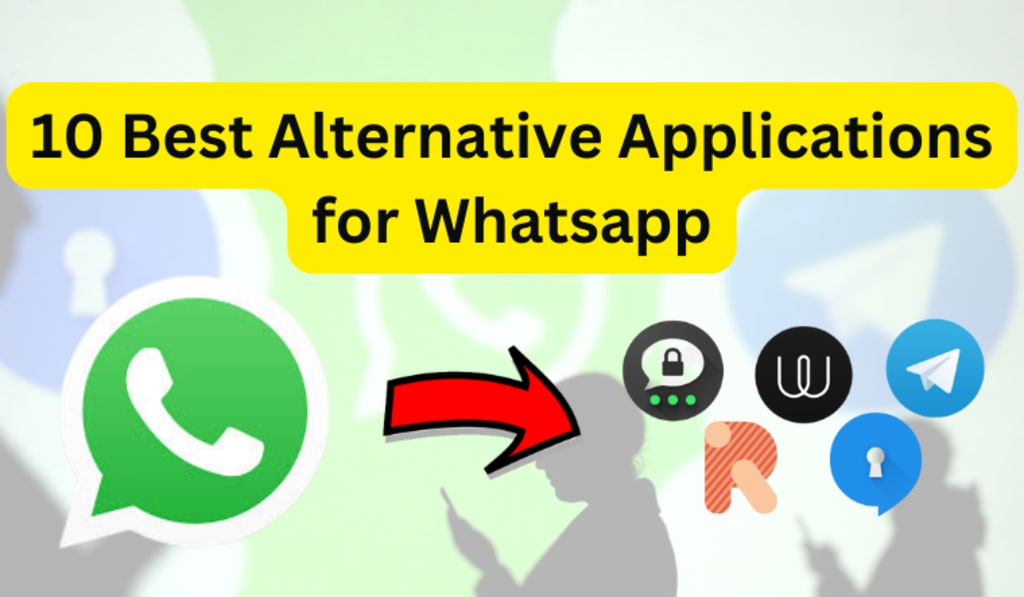
WhatsApp is the most popular messaging app in the world, boasting more than 1 billion users across 180 countries. However, Facebook's acquisition of WhatsApp in 2014 raised concerns among privacy experts and security-conscious users. Facebook and its third-party apps have been involved in numerous security breaches, which have led to the leakage of private information belonging to thousands of users. Despite this, WhatsApp has always maintained that it is a separate app committed to providing a secure messaging service.
Recently, Facebook announced its plans to merge three distinct messaging platforms, namely Facebook Messenger, WhatsApp, and Instagram's message functions. This move will allow users to send messages across all three networks. According to a reliable source, Facebook plans to introduce end-to-end encryption across all three platforms, making Facebook Messenger and Instagram as secure as WhatsApp. However, this could also compromise WhatsApp's security and bring it in line with the security standards of the other platforms.
WhatsApp promises to provide end-to-end encryption, which is a great security feature. However, the company needs to address several loopholes. According to its legal disclaimer, WhatsApp receives and shares information with other companies in the Facebook family. This information can be used for marketing purposes, and the data stored on WhatsApp's servers can be accessed by the government or hackers in exceptional circumstances. While users' messages are likely secure, WhatsApp stores user data on private servers, which could pose a risk to users' privacy.
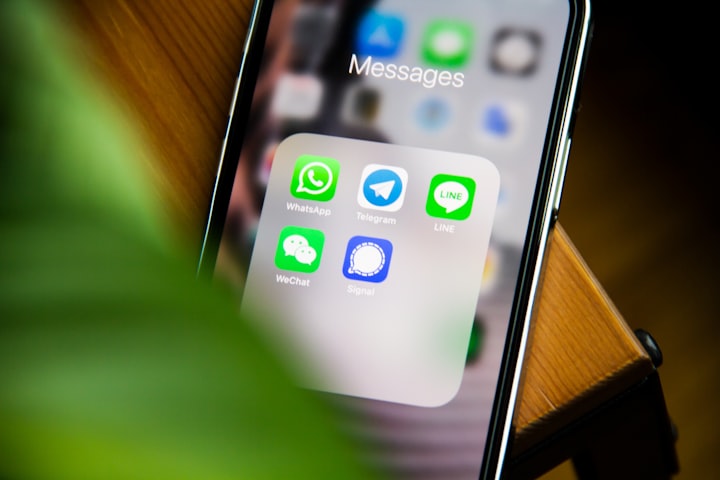
1.Signal
Signal is a messaging app that is free, offers robust encryption, and works on all mobile platforms. The app is straightforward to use and includes voice and video calling features, making it a suitable alternative to WhatsApp. Signal also provides desktop installation files, allowing users to access the app on both their phones and computers.
All messages sent through Signal are encrypted, ensuring that only the sender and receiver can read them. Signal employs open-source encryption, which enables experts to evaluate the app's security and identify any bugs, making it even more secure. Additionally, users can set a time interval for automatic deletion of messages, promoting privacy even if someone else has access to their phone.
While Signal doesn't support animated emojis, users can import their device's emojis into the app.
Pros:
End-to-end encryption
Open-source encryption
Available on all major platforms
Disappearing messages
Cons:
No animated emojis

2.Element:
Element is an application that streamlines team communication and is part of the Matrix ecosystem. It's a secure app with end-to-end encryption and cross-signed device verification to protect your data from unauthorized access. You can use Element to share files, make video calls, and more, with the added benefit of secure backup. You can deploy Element on the cloud or on-premise with any server or EMS Element Matrix Services.
Pros:
Open source
Very secure
Easy to use
Cons:
Requires some technical knowledge
May have issues with bugs
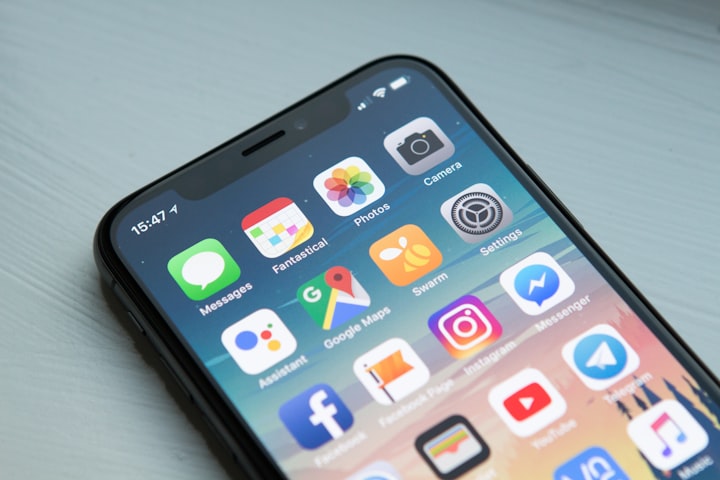
3.Threema
Threema prides itself on providing complete privacy to its users. The app stores contact lists and group information solely on users' phones, ensuring that messages are deleted once delivered. Furthermore, users can connect with others using an 8-digit Threema ID instead of a phone number, enhancing privacy. Threema also provides end-to-end encryption for all message types, including texts, voice calls, shared files, and group chats, making it difficult for unauthorized individuals to access users' messages.
Users can even use Threema securely in-browser and take advantage of formatting features, location sharing, and file sharing, like WhatsApp. However, Threema has additional features, such as creating polls and leaving "like" feedback on individual messages. Users can password-protect particular chats and hide them.
Threema is based in Switzerland, which is known for its pro-privacy laws.
Pros:
No need for a phone number
Contacts can be verified with QR codes
Text formatting features
Password protect your chats
Cons:
Paid app
Also Read : Facebook vs Instagram which is best for Business
4.Telegram:
With over 200 million active users, Telegram is a well-known WhatsApp alternative. It's a cloud-based application that operates on multiple platforms. Like WhatsApp, it utilizes a double-tick mechanism to show when a message has been received.
The app provides default end-to-end encryption for voice calls, ensuring that nobody can listen to your conversations. However, only its "Secret" chats are end-to-end encrypted by default. Normal one-to-one messages, group chats, and channels only use cloud-based encryption, meaning that your messages are stored on Telegram's servers and may be accessible to the company or hackers.
Telegram, like Signal, allows you to automatically delete a message after a specific period. It also supports sharing of multimedia files.
Pros:
Open-source software
User-friendly platform
Cloud-based, so you won't lose your data
Cons:
End-to-end encryption only available in "Secret" chats
Has its own standard encryption, which has been criticized
5.Wire
Wire is a messaging app that prioritizes your privacy with end-to-end encryption and adherence to stringent European data retention laws. The app offers a free personal account option, and paid business plans that come with extra support and features. One of Wire's strengths is its crystal-clear voice and video communications.
Wire enables both 1:1 and group screen sharing, and allows users to share multimedia files and apply audio filtering. The app is compatible with all major platforms, and supports syncing across up to eight devices per account.
In addition to basic text formatting options such as bold and italics, Wire also lets you create lists within chats. You can optimize file sizes to make sharing even easier, and set timers for messages to self-destruct for added privacy. Keep in mind, though, that this app requires payment to use.
Pros:
Secure chats
Timed messages
Ability to use 8 devices simultaneously
Rich conversations
Cons:
Paid app
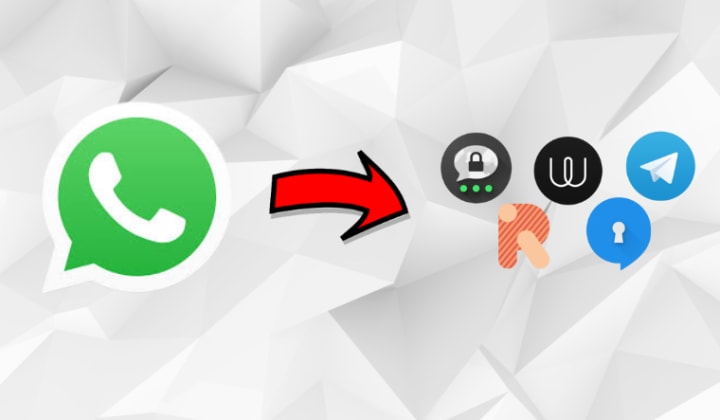
6.Riot.IM
Riot.IM is a messaging app that offers end-to-end encryption for messages and supports VoIP and video calling. The app assigns each user a unique ID, which is used instead of a phone number to ensure anonymity. Developed using open-source software, users can create their own bots to interact with the software, making it more versatile and secure. Riot.IM is well-suited for developer teams, but may not be ideal for corporate groups. It offers both public and private chat rooms, and users can access the app in seven languages. However, encryption is not enabled by default and needs to be manually turned on.
Pros:
User IDs instead of phone numbers for anonymity
Open-source software
Accessible in seven languages
Clean desktop interface
Cons:
Encryption needs to be manually enabled
7.Viber:
Viber is a messaging app released in 2010 that has gained popularity as an alternative to WhatsApp. It comes with a number of features, such as end-to-end encryption for data safety over texts, calls, and media sharing. Unlike WhatsApp, it offers multiple-device support and encrypted image saving. Viber also offers Viber Out, which allows users to make international calls to non-Viber users at an affordable price. The app supports stickers, voice and video calls, and lets users backup their data to Google Drive. However, it does not allow users to block random or unknown callers and is only supported on Windows Phone, iOS, and Android.
Pros:
Offers end-to-end encryption
Can make international calls to non-Viber users
Supports stickers, voice, and video calls
Lets users backup data to Google Drive
Cons:
Cannot block random or unknown callers
Limited to Windows Phone, iOS, and Android platforms.
Also Read : Scammers New target Smart TV
8.Kik
Kik is a messaging app similar to WhatsApp, but with a key difference: you don't need to use your phone number to register. Instead, Kik only requires your email address. Once you're registered, you'll be given a unique ID to chat with other Kik users. Kik supports various messaging needs and bots, which you can use to get news, tips, and play quizzes. However, Kik doesn't store messages on its server, so retrieving old messages can be difficult. You'll need to take screenshots or use third-party apps.
Pros:
No phone number required
Personalized data
Free to use
Cons:
Limited photo and video sharing
No voicemails, calls, or video calls
9.Skype
If you need to make international calls or video calls, Skype is an excellent alternative to WhatsApp. Skype has superior video call functionality compared to WhatsApp, and you can retrieve your old chats and deleted messages easily. However, file sharing is limited, and the connection can break due to limited bandwidth.
Pros:
Great for video calls
Free to use
Secure
Cons:
Limited file sharing
Connection issues due to limited bandwidth
10.WeChat
WeChat is a popular messaging app and a suitable replacement for WhatsApp. Unlike WhatsApp, WeChat offers various communication options, such as voicemails, calls, and video calls. However, WeChat doesn't have end-to-end encryption or read receipts, and you can't delete messages after sending them. These features are available in WhatsApp. WeChat is still a reliable alternative to WhatsApp.
Pros:
Free to use
Easy to use
700 million users
Cons:
Security isn't as strong as it could be
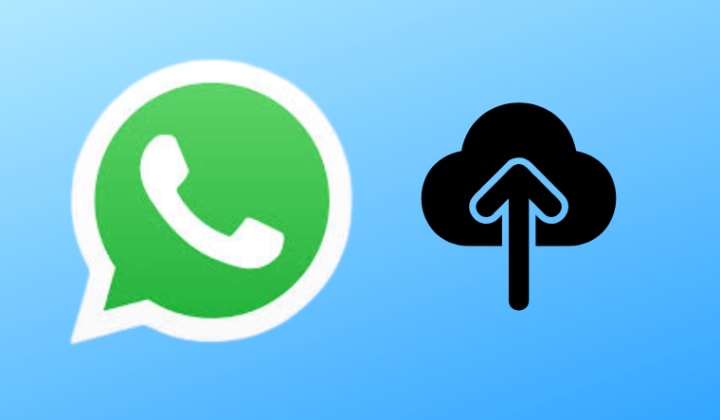
Advice on backing up WhatsApp data:
If you're switching from WhatsApp to another messaging app, we recommend backing up your WhatsApp data before deleting your account. MobileTrans is an excellent tool for transferring data between devices. It also allows you to back up your data to a computer for free. Once you delete your WhatsApp account, your data will be permanently removed from the server, as well as from iCloud or Google Drive.
About the Creator
abdul rahoof
Content writer | Blogger






Comments
There are no comments for this story
Be the first to respond and start the conversation.